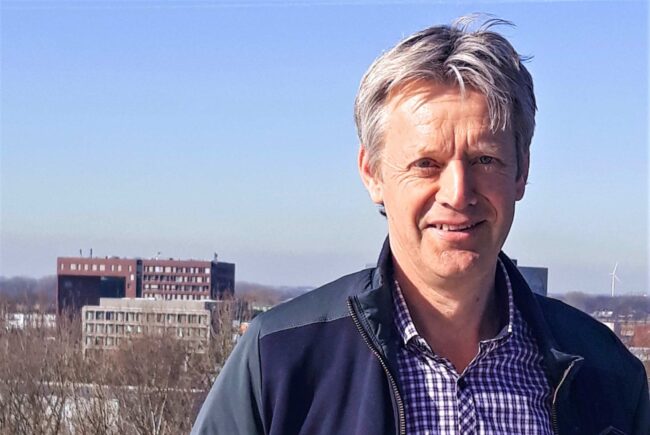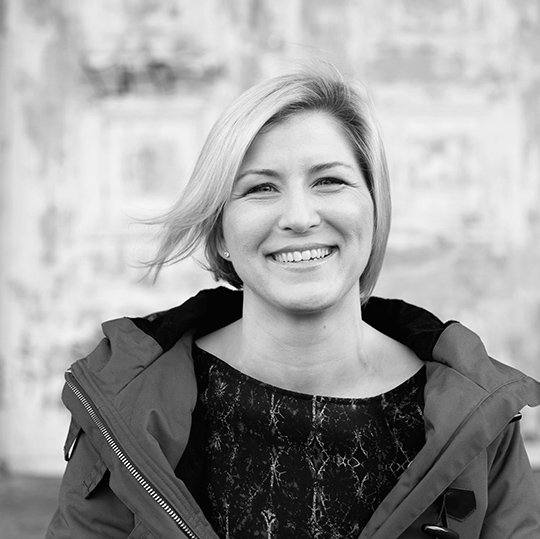

“Transgressive learning is about exposing exploitation and disrupting the structures that work towards maintaining them,” says Arjen Wals. Photo: Courtesy of Arjen Wals.
“Transgressive learning is about exposing exploitation and disrupting the structures that work towards maintaining them,” says Arjen Wals. Photo: Courtesy of Arjen Wals.
New ways of teaching such as transgressive learning can lead to real change, says thought leader Arjen Wals, professor of transformative learning for socio-ecological sustainability.
“It all starts from a paradigm shift in our relationship with nature,” says Arjen Wals, professor of transformative learning for socio-ecological sustainability at Wageningen University in the Netherlands and UNESCO Chair of Social Learning and Sustainable Development.
Change begins with recognising existing structural biases.
“Education, training and innovation almost exclusively serve the economy, not a circular one, but one which depends on growth, efficiency, materialism and consumerism. It is an economy that neglects planetary boundaries, the importance of health and well-being and our connection with nature and each other,” says Wals.
“In our present world, the drive to consume is infinitely greater than the drive to sustain.”
Peaceful rebellion
Part of the paradigm shift requires embracing transgressive learning, which asks questions and challenges the status quo. It is a newer, more radical approach to addressing the challenges of our time that complements transdisciplinary learning (creating connections between different disciplines) and transformative learning (learning experiences that cause a shift in personal perspective).
“If we really want to do something about climate change, we need to look at the root causes. Transgressive learning is about exposing marginalization, colonization, exploitation, dehumanization and other forms of systemic unsustainability, and disrupting the powers and structures that work towards maintaining them,” says Wals.
Examples of transgressive learning are often found outside of classrooms in loose intentional networks such as the Youth Climate Strike movement, Extinction Rebellion and Fridays for Future.
“For example, climate activists recently started blocking the main Dutch highway to the Hague to express their anger at government subsidies (37.5 billion euros) for industries that use oil, coal and gas. The protestors sent a clear message that extreme temperatures around the world will increase if we continue to use fossil fuels,” says Wals.
Their actions created awareness and dialogue but also resistance and conflict with the authorities and climate skeptics. Through resistance and conflict, power imbalances and dysfunctional structures are unveiled and can be addressed.
Other examples of transgressive learning can be found in intentional communities seeking to go-off-the-grid by creating more localised sustainable energy cooperatives, food systems and green urban renewal. Or by young people calling for a meat-less school or university cafeteria.
The new normal means being aware and actively making informed everyday lifestyle decisions that lessen the burden on the planet while strengthening solidarity and an ethic of care and responsibility.
Planting the seeds of sustainability
Wals, who holds a PhD with a Fulbright fellowship from the University of Michigan in Ann Arbor, grew up in the Netherlands. Both of his parents were significant environmental educators.
Wals’s academic base, Wageningen University & Research, is tucked into an agricultural region in the Netherlands known as the “Food Valley.” The school’s mission is to explore nature’s potential for improving the quality of life.
The current educational challenge is engaging people meaningfully in figuring out what needs to be sustained in our world but also what needs to be disrupted in order to overcome the current systemic global dysfunction, says Wals.
“How do we teach people to live well, equitably and within planetary boundaries, when structures, values and assumptions upon which we are building our lifestyles make living in such a way nearly impossible?” he asks.
Sustainability is not a fixed idea that can be handed over. Rather, it is more about creating environments that ‘breathe’ sustainability.
“And how do we prevent fear and despair since the challenges can seem so overwhelming? What is becoming increasingly clear is that sustainability is not something that can be taught like photosynthesis or Newton’s laws, because it’s a concept that is still unfolding, one that can have a different meaning depending on where you are in the world and at what point in time you are trying to figure it out. It is not a fixed idea that can be handed over. Rather, it is more about creating environments that ‘breathe’ sustainability and a culture that invites critical thinking, transgression and action. It requires constant re-calibration but also finding the right moral compass. This is becoming a new challenge for our schools. A Whole School Approach that considers a school’s ethos and culture, as well as the curriculum, its own practices, the professional development of staff, the pedagogy and school-community connections, offers a lens which can help to realise this challenge,” he says.
Here are four ways to engage in transgressive learning, according to Wals:
1. Ask questions – especially uncomfortable ones
For example, where does your morning coffee come from? Who made it and how? Were the people who made it paid and treated fairly? Was the production process earth-friendly or not?
In addition to make sustainable purchasing choices, could you be part of the change, for example, by creating a QR- code that allows potential buyers to see the coffee’s source and lifecycle?
Also, why are we serving meat from factory farming in our canteen? How about the clothes we are wearing? And so on.
It’s important that people are uncomfortable together and can support each other and that exploring difficult questions moves towards figuring out promising and hopeful alternatives.
2. Develop inner sustainability
Inner sustainability refers to your own health and well-being and how much agency you have in changing yourself but also the world around you. If you’re not good within yourself, it’s hard to be concerned and active regarding bigger picture issues.
Inner and outer sustainability go hand-in-hand. This also implies that schools and universities need to pay attention to socio-emotional learning.
3. Foster natural intelligence
In our “always-on society,” instead of focusing on artificial intelligence (AI) and being distracted by screens and living by algorithms, how about connecting with place, nurturing nature or Natural Intelligence? That means re-wilding, going outside more, and spending time in nature. Building natural intelligence complements developing inner sustainability.
4. Lifelong learning
We need to include everyone, with empathy, diversity and different perspectives. It’s not just younger generations who need to be concerned with climate change. Middle-aged and older generations often have the biggest footprints, at least in our part of the world, because they have more financial security and spending power.
We need to include everyone in learning to cultivate anticipatory thinking for bigger ecological change. It’s too easy and unfair to shift the burden of change from older generations to younger ones.
And, let us not forget the power of inter-generational learning for sustainability. Adults can learn just as much from young people as the other way around.
Belonging through inclusion and diversity
We’re very good at drawing boundaries and making distinctions, but we should search for connections, develop relationships and come to discover how our lives are entangled, also with other species, says Wals.
“Connection brings people from different backgrounds and generations together. Adult educators and researchers should foster learners’ understanding of and connection with their natural environment,” says Wals.
Protecting the planet can mean different things to people depending on cultural background and life situation.
“If you’re living in the slums of Mumbai, your reality is very different than for someone living in the age of entitlement who can travel wherever they want whenever they want and with one click, have their favourite coffee beans delivered to their doorstep almost immediately,” says Wals.
By way of example, Wals refers to intergenerational differences on food sustainability.
“My parents were born in the 1930s and grew up during the war and ate tulip bulbs as a food source when there was little else available, whereas my children have not had to want for food,” says Wals.
And while radical change is needed as the planet is on a collision course, Wals says it’s important to remember that it can also be done with humour and art.
“Think for example of Banksy’s cartoons,” says Wals, referring to the anonymous England-based street artist and political activist whose art provokes debate on important social issues from war to climate change.
“Education for sustainability need not be depressing and all ‘doom and gloom’ – it can also be creative, inspiring, energising and hopeful,” says Wals.
Arjen Wals
- teaches and researches designing learning processes and learning spaces that enable people to contribute meaningfully to sustainability
- is a professor of transformative learning for socio-ecological sustainability at Wageningen University in The Netherlands, one of the leading international universities in environmental and life sciences
- holds the UNESCO Chair of Social Learning for Sustainable Development
- is a visiting professor at Norwegian Life Science University in Ås, where he supports the development of Whole Schools Approaches & Sustainability
- is the editor and co-editor of a number of popular books including: Higher Education and the Challenge of Sustainability (Kluwer Academic, 2004), Creating Sustainable Environments in our Schools (Trentham, 2006), Social Learning towards a Sustainable World (Wageningen Academic, 2007), Learning for Sustainability in Times of Accelerating Change (2012), Envisioning Futures for Environmental and Sustainability Education (Wageningen Academic, 2017), and Whole School Approaches to Sustainability (Springer, 2024)
- is a senior policy advisor to UNESCO’s Global Education Monitor Report “Education for People and Planet” on the role of education in helping realise the UN’s Sustainable Development Goals (SDGs)
Author







